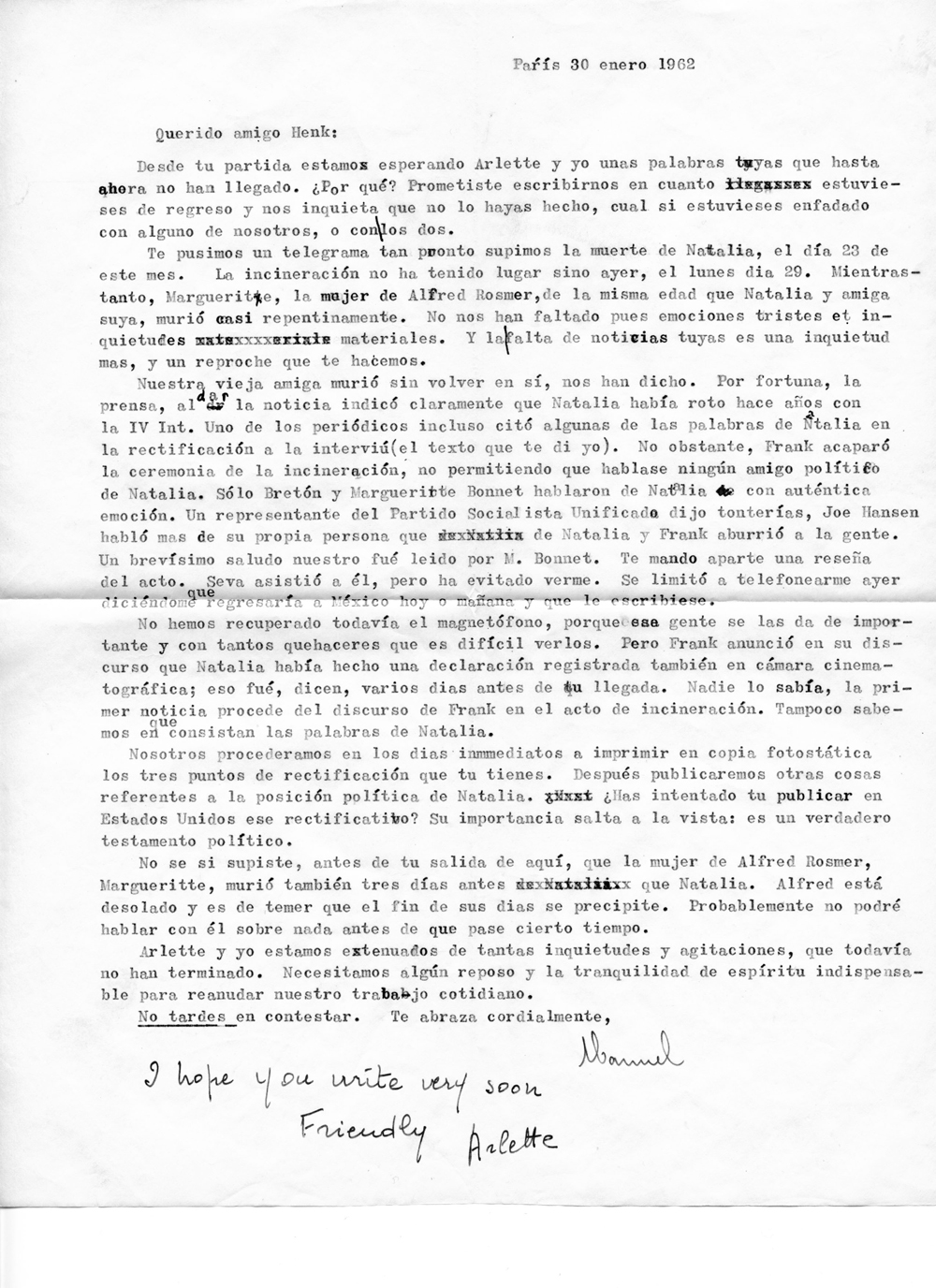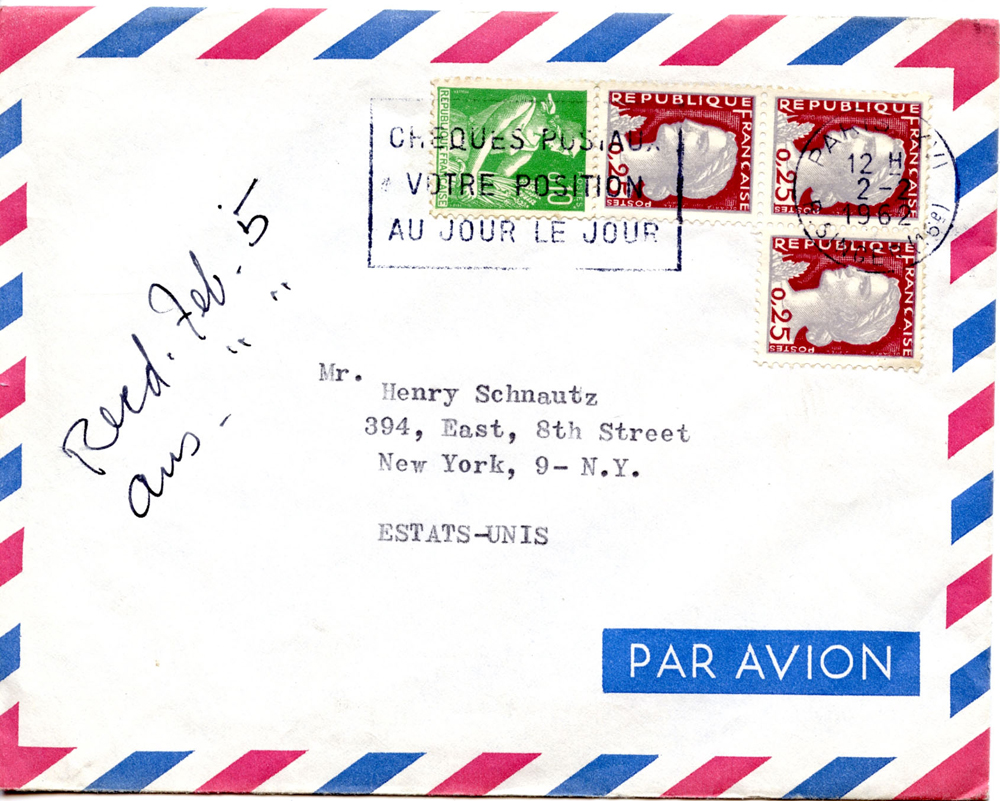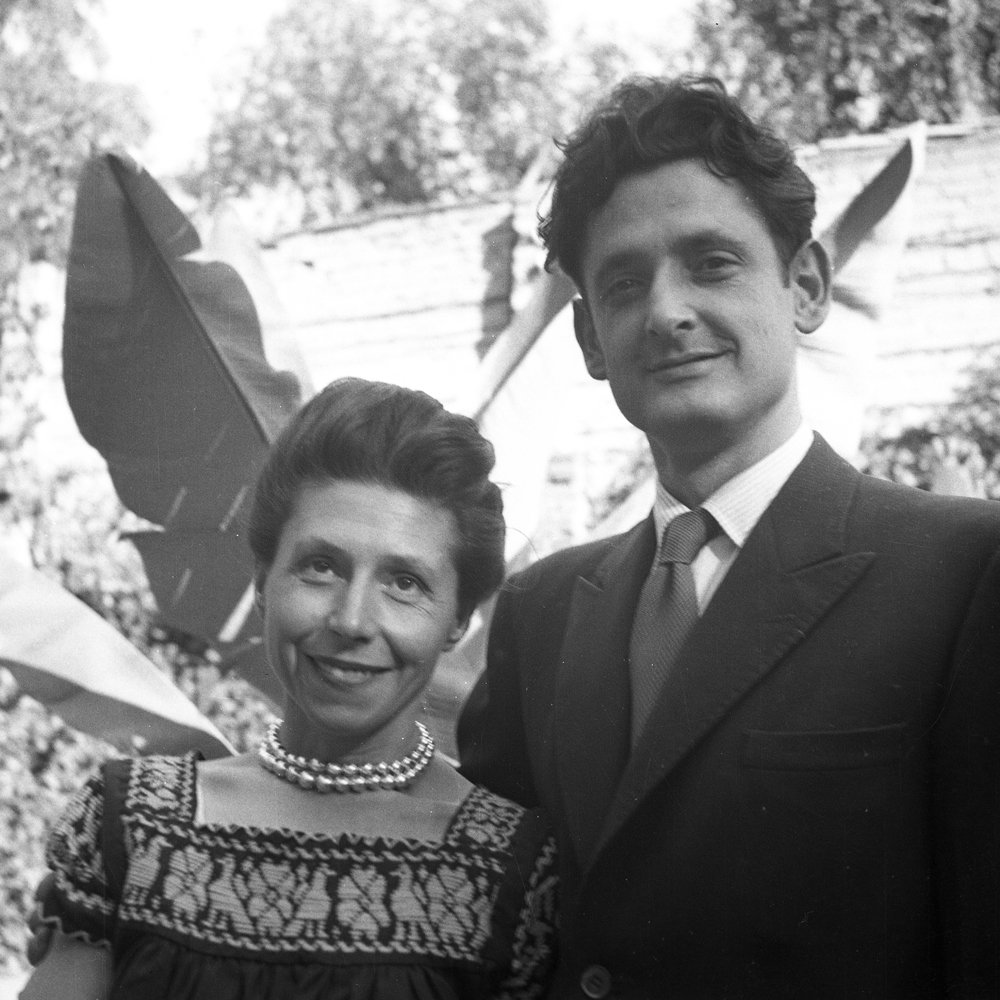
Grandizo Munis was a Spaniard who was at the Trotsky compound 1940-1943. He was one of three people who spoke at Trotsky's funeral in Mexico. He fought in the Spanish civil war and was imprisoned when he returned to Spain in the 1950's. He was an independent Socialist all his life. He wrote many books and articles, published the magazine Alarme.
When Natalia Trotsky began criticizing and finally breaking with the IV International, the organization her husband founded, leaders in New York excused her as being under Munis' influence.
Munis and Henry were friends and wrote each other until Munis' death in 1989. He signed his name Manuel. Henry and Munis both had respect and affection for Natalia Trotsky. Munis wrote to Henry Jan 30, 1962, describing Natalia Trotsky's memorial service. Henry had flown to Paris shortly before to pay his respects to the ailing Natalia. In the letter he says Joe Hansen spoke about himself, Pierre Frank bored people, only Margueritte Bonnet and (Andre?) Breton spoke with emotion.
It was important to Munis that Natalia Trotsky's political thoughts were not misrepresented. After her death he published at various times the documents directly concerned with her break from the IV International.
Munis and Arlette Monnerie had a baby girl in 1966. They named her Natalia.
This picture of Munis taken by Henry in May 1946 inside the Trotsky compound. I do not know if this is Arlette Monnerie with him but unlikely
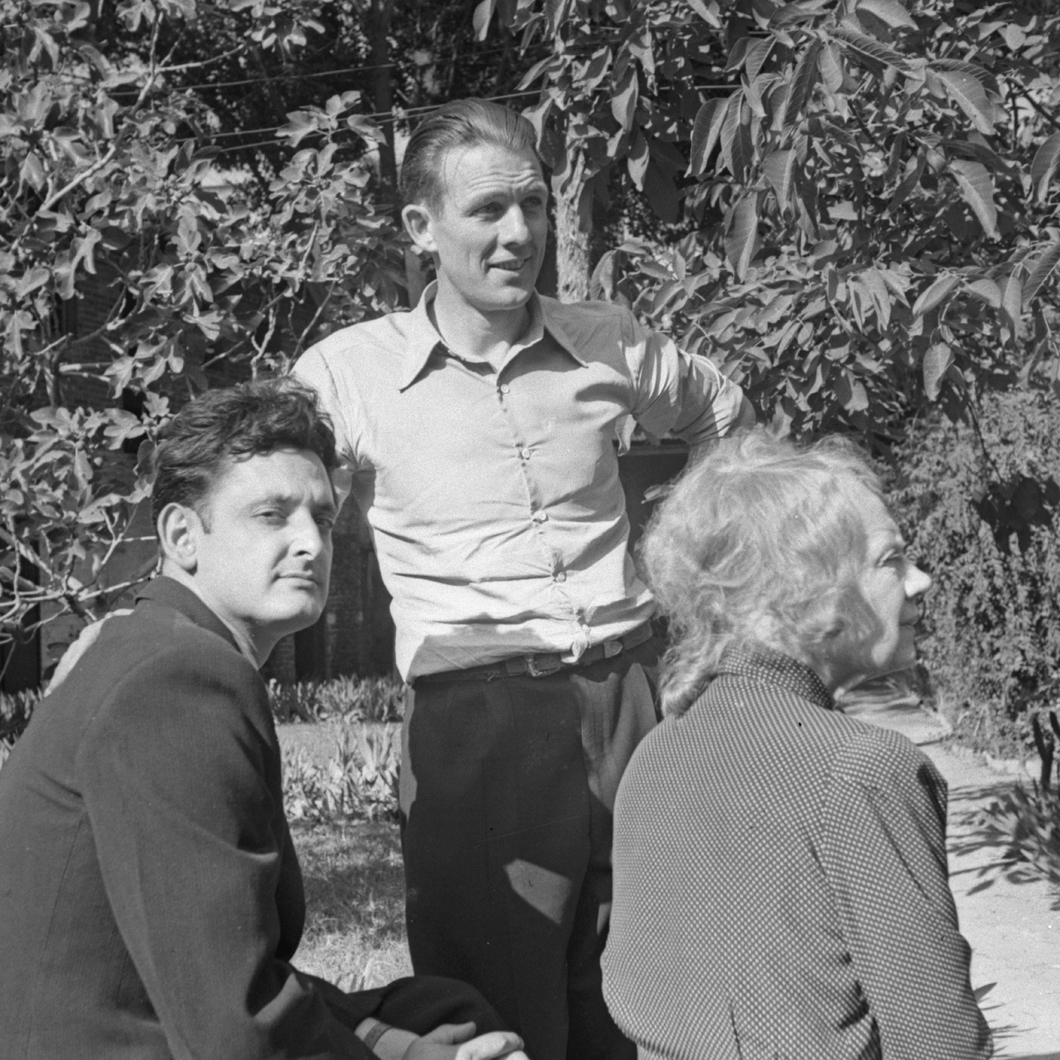
Munis, Henry Schnautz and Natalia Trotsky, in the compound courtyard, May 1946
Grandizo Munis internet archive
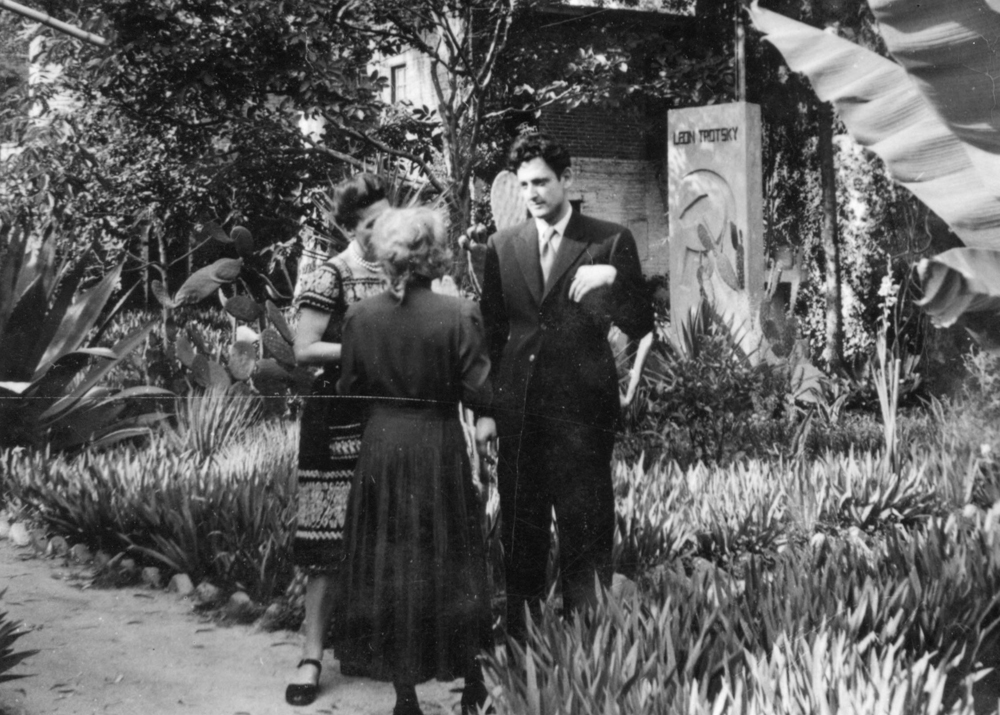
Munis was selected by Natalia to be one of three speakers at Trotsky's Memorial service in Mexico.
Munis spoke at Trotsky's memorial service in Mexico - an account by Joe Hansen
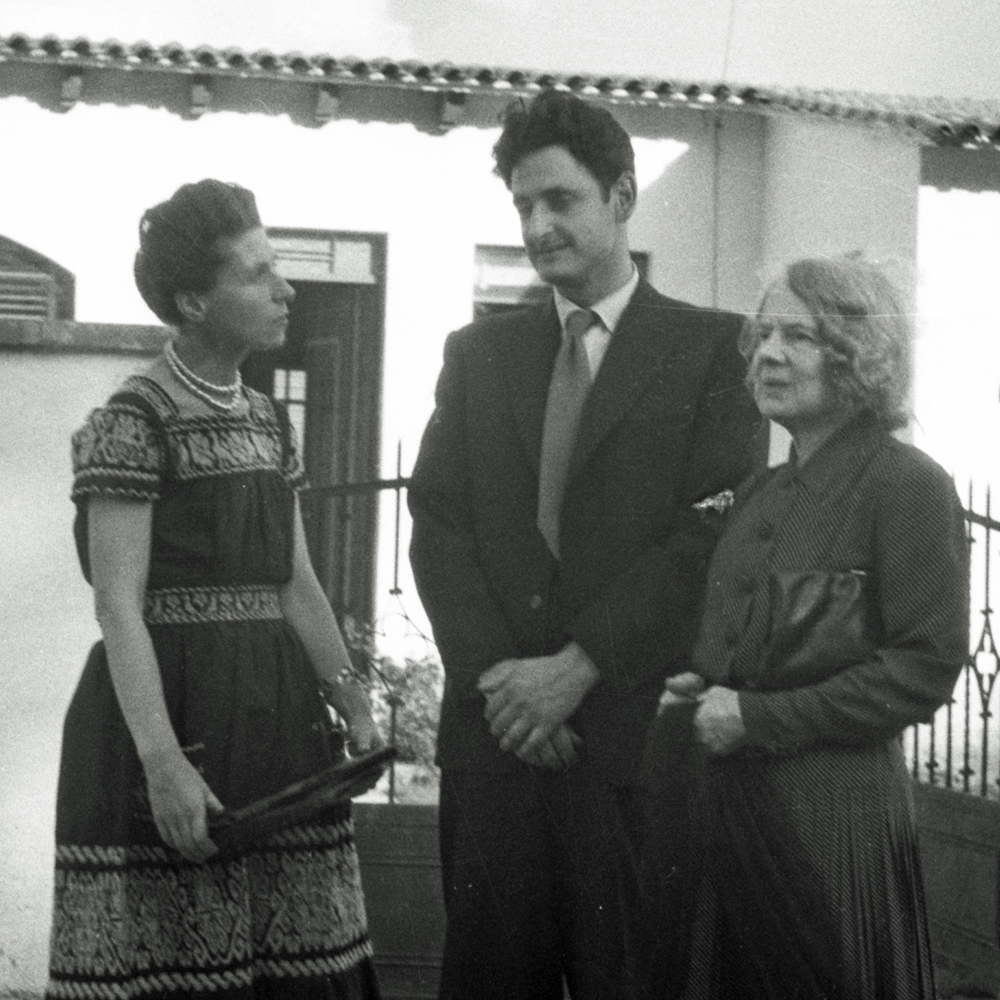
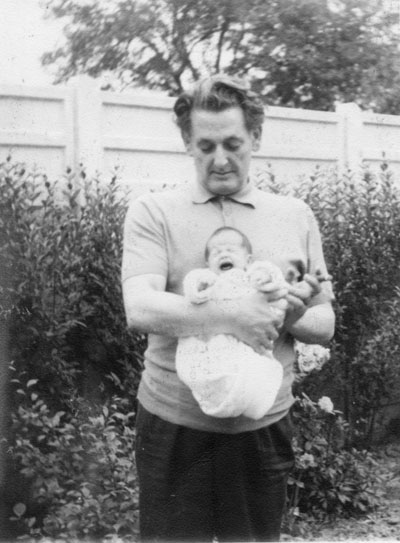
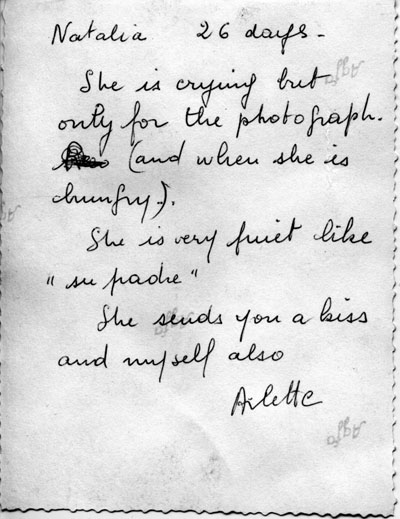
Munis holding his baby daughter, Natalia.
Munis and Arlette sent the picture in a letter dated 1966 Sept 25.
Paris 30 enero 1962
Querido amigo Henk:
Desde tu partida estamos esperando Arlette y yo unas palabras tuyas que hasta ahora no han llegado. ¿Por qué? Prometiste escribirnos en cuanto estuvieses de regreso y nos inquieta que no lo hayas hecho, cual si estuvieses enfadado con alguno de nosotros, o con los dos.
Te pusimos un telegrama tan pronto supimos la muerte de Natalia, el día 23 de este mes. La incineración no ha tenido lugar sino ayer, el lunes día 29. Mientras tanto, Marguerite, la mujer de Alfred Rosmer, de la misma edad que Natalia y amiga suya, murió casi repentinamente. No nos han faltado pues emociones tristes et inquietudes materiales. Y la falta de noticias tuyas es una inquietud mas, y un reproche que te hacemos.
Nuestra vieja amiga murió sin volver en sí, nos han dicho. Por fortuna, la prensa, al dar la noticia indicó claramente que Natalia había roto hace años con la IV Int. Uno de los periódicos incluso citó algunas de las palabras de Natalia en la rectificación a la interviú (el texto que te di yo). No obstante, Frank acaparó la ceremonia de la incineración, no permitiendo que hablase ningún amigo político de Natalia. Sólo Bretón y Margueritte Bonnet hablaron de Natalia con auténtica emoción. Un representante del Partido Socialista Unificado dijo tonterías, Joe Hansen habló mas de su propia persona que de Natalia y Frank aburrió a la gente. Un brevísimo saludo nuestro fué leido por M. Bonnet. Te mando aparte una reseña del acto. Seva asistió a él, pero ha evitado verme. Se limitó a telefonearme ayer diciéndome que regresaría a México hoy o mañana y que le escribiese.
No hemos recuperado todavía el magnetófono, porque esa gente se las da de importante y con tantos quehaceres que es difícil verlos. Pero Frank anunció en su discurso que Natalia había hecho una declaración registrada también en cámara cinematográfica; Eso fue, dicen, varios días antes de su llegada. Nadie lo sabía, la primer noticia procede del discurso de Frank en el acto de incineración. Tampoco sabemos en que consistan las palabras de Natalia.
Nosotros procederemos en los días inmediatos a imprimir en copia fotostática los tres puntos de rectificación que tu tienes. Después publicaremos otras cosas referentes a la posición política de Natalia. ¿Has intentado tu publicar en Estados Unidos ese rectificativo? Su importancia salta a la vista: es un verdadero testamento político.
No sé si supiste, antes de tu salida de aquí, que la mujer de Alfred Rosmer, Margueritte, murió también tres días antes que Natalia. Alfred está desolado y es de temer que el fin de sus días se precipite. Probablemente no podré hablar con él sobre nada antes de que pase cierto tiempo.
Arlette y yo estamos extenuados de tantas inquietudes y agitaciones, que todavía no han terminado. Necesitamos algún reposo y la tranquilidad de espíritu indispensable para reanudar nuestro trabajo cotidiano.
No tardes en contestar. Te abraza cordialmente,
Manuel
Paris 30 January 1962
Dear friend Henk:
Since your departure, Arlette and I have been waiting for some words from you, but so far they have not arrived. Why? You promised to write to us as soon as you were back and we are worried that you have not done so, as if you were angry with one or both of us.
We sent you a telegram as soon as we heard of Natalia's death, on the 23rd of this month. The cremation did not take place until yesterday, Monday the 29th. In the meantime, Marguerite, Alfred Rosmer's wife, the same age as Natalia and a friend of hers, died most suddenly. So we have not lacked sad emotions and material worries. And the lack of news from you is one more worry, and a reproach that we make to you.
Our old friend died without coming to, we were told. Fortunately, the press, in giving the news, clearly indicated that Natalia had broken up years ago with the IV Int. One of the newspapers even quoted some of Natalia's words in the correction to the interview (the text I gave you). However, Frank monopolized the cremation ceremony, not allowing any of Natalia's political friends to speak. Only Breton and Marguerite Bonnet spoke of Natalia with genuine emotion. A representative of the Unified Socialist Party spoke nonsense, Joe Hansen spoke more about himself than about Natalia and Frank bored the people. A very short greeting from us was read by M. Bonnet. I am sending you a separate review of the event. Seva attended it, but avoided seeing me. He limited himself to telephone me yesterday telling me that he would return to Mexico today or tomorrow and that I should write to him.
We have not yet recovered the tape recorder, because these people are so important and so busy that it is difficult to see them. But Frank announced in his speech that Natalia had made a statement also recorded on film camera; that was, they say, several days before her arrival. Nobody knew it, the first news comes from Frank's speech at the cremation ceremony. Nor do we know what Natalia's words consist of.
We will proceed in the next few days to print in photostatic copy the three points of rectification that you have. Then we will publish other things concerning Natalia's political position. Have you tried to publish this rectification in the United States? Its importance is obvious: it is a true political testament.
I don't know if you knew, before you left here, that Alfred Rosmer's wife, Margueritte, also died three days before Natalia. Alfred is devastated and it is to be feared that the end of his days will be hastened. I probably won't be able to talk to him about anything for a while.
Arlette and I are exhausted from so many worries and agitations, which are not yet over. We need some rest and the necessary peace of mind to resume our daily work.
Don't be late in answering. A cordial embrace to you,
Manuel
